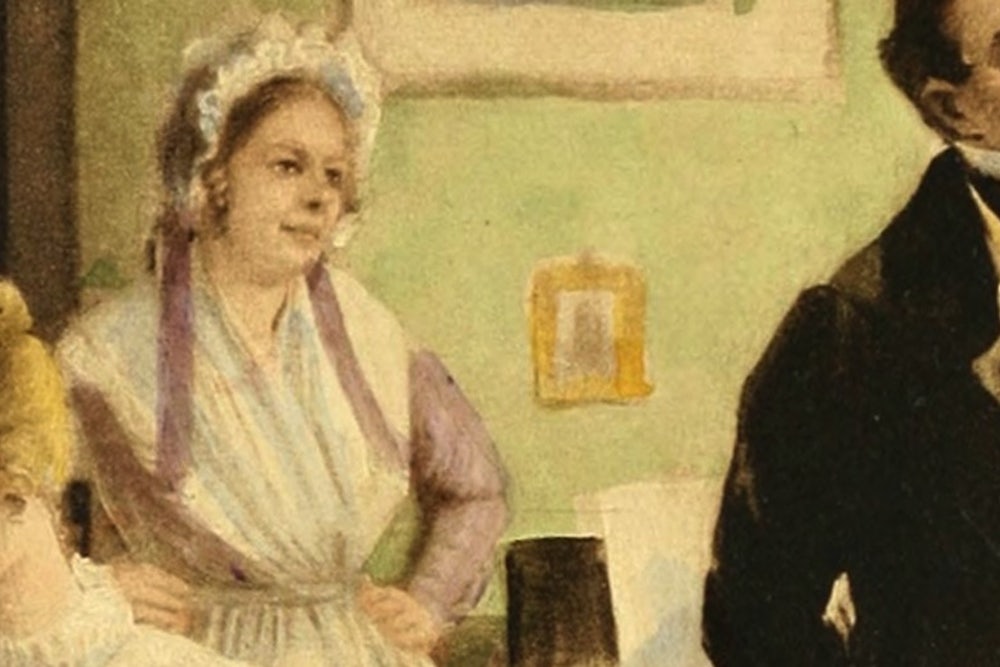My junior year at Brown, I was so unhappy that I dropped out. The place had begun to strike me as too narrowly focused on career and a dreary brand of meritocratic accomplishment. I wanted to try a different kind of life. I moved to Arizona and worked as a waitress at a sports bar. I’d never been to Arizona before, but I thought it would be beautiful and unlike the East Coast. (It is both.)
I craved insight into how to live, how to be happy, how to make sense of other people. I’d always turned to novels for answers, although not generally to the kinds of novels assigned in English class. Until I went to Arizona, I’d tended to assume that novels about women who lived before the 1960s and the sexual revolution could have no relevance for a modern young woman like me. The way we live now just seemed too fundamentally changed for fiction from earlier eras to resonate meaningfully, to be interesting on more than an academic level. I found books not by consulting course syllabi (I wasn’t even an English major) but by wandering through bookstores, picking up contemporary novels with appealing covers and quotes from The New York Times.
And yet, by the time I was 19 or 20, I found I was often unsatisfied. I read books that were smart and funny and inventive about modern politics and pop-culture, but I found fewer books that resonated with me on the personal level. Many were nicely written, but I often suspected that the author didn’t know much more than I did about life, about psychology, about the things I really cared about. In too many books, it was obvious what the characters should do, who was good or bad and in what degrees; such books engendered in the reader a sort of puffed-up sense of his or her own superior smarts. But…my life was a mess. If personal life were as simple as it was in the books I read, I wouldn’t be as confused as I was.

In Arizona, I made a close friend whose highbrow reading habits impressed me. He wasn’t reading for class—he wasn’t even in school—and he wasn’t stiff and pretentious, qualities I blithely associated with people who read Penguin Classic type novels “for fun.” He was lively and funny and very insightful about people—and he gave me some of the toughest and most useful advice I’d ever gotten about my romantic life. It was through his influence that I came, at 21, to read Middlemarch.
I read other nineteenth-century novels as well (Stendhal and Austen resonated particularly), but Middlemarch was my favorite, in part because of the breadth of Eliot’s fictional lens, the way she characterized the tenor of characters’ intellectual lives as carefully and fairly—and as perceptively—as she characterized their thinking about romance and social life; this gave her characters a multi-dimensionality that seemed as unusual in fiction as it is common in real life, where people are many things at once, admirable in one light and pathetic in another. Eliot’s ability to describe people was, in its subtlety and depth and scrupulousness, so many levels above my pay-grade. My own attempts were feeble in comparison. “He plays bass and dislikes capitalism and has long hair and an intense look,” I’d say to a friend in explaining why I liked a certain guy, and the truth was that it was the best I could do. I didn’t have the intellectual tools to get beyond surface qualities and social signifiers, to think about, let alone talk about, people with anything approaching the complexity with which we actually experience one another in life.
Once I learned how to read nineteenth-century (and some eighteenth-century) novels—that is, became accustomed to the language, stopped mistaking its seeming formality for graveness, and began to read in earnest, i.e., not like a pompous asshole (you know, the kind who reads the thing at arms’ length, only to search for evidence to bolster this or that pre-existing theory, and misses the heart)—the books began to teach me more than I ever expected, more than I ever thought there was to learn. Richardson to Austen and Gaskell and Eliot to Flaubert and Tolstoy, different as they are in many ways, share a rigorous, tough-minded but eminently fair approach to the analysis of inner lives. They are moral in the best, most liberal and broad-minded sense of that word.
I feel extremely lucky. I’m not being melodramatic when I say that I don’t think I’d recognize the person I’d have become without Middlemarch and the rest, if I hadn’t gone to Arizona, met that particular friend. It wasn’t so much my writing that was primarily affected—it would take many years of reading and re-reading for any of this to find its way into my own attempts at fiction. It was that my thinking that changed, that became richer, less programmatic, less susceptible to the trendy idiom of the day.
